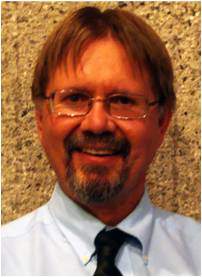“Steady State Economy” — a Positive Vision in International Affairs
by Brian Czech

Before we think about the steady state economy, let’s think for a moment about economic growth. Economic growth still has such positive connotations in domestic politics, especially American politics, that the vast majority of citizens simply assume that whoever can do more for economic growth is the better statesman (man or woman), better Federal Reserve chair, better economic advisor, etc. That’s why the definition of economic growth bears repeating over and over again, to pull the magic cloak from a purely material process. Economic growth simply means increasing production and consumption of goods and services in the aggregate.
In other words, economic growth means increasing population, increasing per capita consumption, or both. There’s nothing magical about it. Economic growth means more and more “stuff” – green stuff, brown stuff, pink stuff — and it takes more “stuff” to make it happen. That’s pretty obvious for the agricultural, extractive, and manufacturing sectors. But service sectors, even the information sector, take more stuff to grow, too.
And stuff tends to run out. Peak Oil, Peak Water, Peak Everything as Richard Heinberg called it; Earth has only so much to go around. Earth is big, but so is 7 billion — the number of people in the global economy. More importantly, guess which one is still growing.
Economic growth is indicated by increasing GDP. In nations with big ecological footprints — the United States, Japan, Germany, China, Brazil — economic growth has long been maxed out within the borders. Huge economies have to reach across their borders for natural resources, and their pollutants go international too. Economic growth is increasingly questioned as a positive vision in international affairs.
Many if not most nations recognize that economic growth has become more of a problem than a solution from a global perspective. That’s why Herman Daly calls it “uneconomic growth.” Resource shortages, pollution, climate change, congestion, and biodiversity loss are all results and indicators of economic (or uneconomic) growth.
In other words economic growth, indicated by increasing GDP, has become a bad deal, at least at the global level. It was a good deal some decades ago when it cost us little in clean air, clean water, fish and wildlife, and peace and quiet. But now it’s a bad deal and we need to recognize it as bad.
Calling economic growth a bad thing doesn’t make the steady state economy a negative vision. Far from it. In fact, when economic growth is a bad thing, only an alternative to growth can be a good thing, right?
So what are the alternatives to economic growth? This is where sticking to the standard, textbook, policy-relevant definition of economic growth comes in handy. Again, economic growth is increasing production and consumption of goods and services in the aggregate, indicated by growing GDP. So we have only two basic alternatives: decreasing production and consumption of goods and services in the aggregate, or stabilized production and consumption of goods and services in the aggregate. The former results in declining GDP and the latter in stabilized GDP. The former is called “recession.” The latter is called a “steady state economy.”
Of these, which one sounds like the better deal? Which one evokes the more positive image? Which one should be advocated as the solution to the problem of economic growth?
I’ll go out on a limb and say it’s the steady state economy.
Fortunately, I had the opportunity to test this hypothesis at the 20th anniversary of the Earth Summit, otherwise known as “Rio+20,” from June 20-22. There in Rio de Janeiro I talked with dozens of delegates from countries ranging in GDP from the gargantuan United States to the diminutive Comoros. Here’s what I found: nearly all favored the steady state economy as the positive solution to the problem of economic growth. Nearly all saw continuous economic growth as bad and the steady state economy as good.
That’s right, nearly all!
Doubt it? Think again. These diplomats ain’t no dummies. They know full well the planet is filling up with people and stuff, and that many national economies are beyond their sustainable levels.
Of course, there are exceptions. Some diplomats have the intellectual disadvantage of a background in neoclassical economics, leading them to believe there is no limit to economic growth. They can’t defend such a fallacious hypothesis, but they still believe it.
Then again, not all diplomats who agree about limits to economic growth will formally acknowledge such agreement. A distinct tendency was clear in Rio: wealthy-nation delegates were afraid to buck the party line of economic growth except in private conversation. The reasons should be obvious. In the United States, for example, we have Wall Street, the Federal Reserve System, and the Department of Commerce pushing hard for economic growth. No one should underestimate the power of these players to influence the language of statesmen, political appointees, and bureaucrats.
In small nations with widespread poverty, on the other hand, the general public, professional diplomats, and elected politicians have one thing in common: they’ve all experienced the unfairness of global economic growth and pro-growth policies. When it comes to natural resources, smaller countries tend to be deal takers, not deal makers, and the terms of trade are harsh.
That’s why the CASSE position on economic growth has garnered signatures from numerous small-country diplomats, ministers, and other delegates in international affairs. In Rio, I found delegate after delegate supportive of steady state economics for international diplomacy. Many were from African, South American, and Asian countries far removed from Wall Street and wary of international pro-growth institutions such as the World Bank, International Monetary Fund, and World Trade Organization. I got the succinct impression that, if only we had the time and access to all diplomats of the world, and even to heads of state, we would find the vast majority of them calling for steady state economics just as the CASSE position describes. That means starting in large, wealthy countries and gradually expanding to other nations after an opportunity to catch up in per capita consumption, at least to a reasonable degree.
Yet many activists, scholars, and ‘think-tankers’ are afraid to talk openly in public about the steady state economy, much less to go on record as supporting it. They think the phrase “steady state economy” has negative connotations. They think this makes the steady state economy too difficult to promote.
The fact is that any macroeconomic goal (growth, steady state, recession) has negative connotations. It’s time to pick your negative connotations!
Some may think that negative connotations can be avoided by the use of feel-good rhetoric such as “green,” “blue,” or “new” economics. I hate to burst the bluegreen bubblegum, but these too have plenty of negative connotations. This was evident in Rio. “Green,” “blue,” and “new” are seen by diplomats for what they are: rhetorical ploys to skirt the tough issues we face in the real world.
Long-time explicit advocates of the steady state economy could, I suppose, be accused of a biased opinion. But I know what I saw in Rio: delegates almost invariably connected quickly with the phrase “steady state economy.” Although it’s a phrase that requires some thought for translation to other languages, it makes so much common sense that the translation occurs alright. For example, the CASSE position on economic growth is already posted in 19 languages. After all the followups from Rio+20, it will also be posted in Chinese, Turkish, Hindi, Bangladeshi, Japanese, and Hungarian.
In political science, a central principle is name recognition. All else equal, the name recognized is the name favored. This applies to politicians, policies, and platforms. That’s why it matters when a professor, activist, diplomat, minister, or head of state chooses a label for a particular economic goal. “Green” has name recognition, but its meaning is fuzzy. “New” has little recognition or meaning, at least as applied to economics. “Steady state economy” has modest recognition, so far, but it clearly expresses the primary principle; a stabilized economy that is neither growing nor shrinking, but fluctuating around a sustainable level.
“Steady state economy” is a positive, proactive phrase that’s productive in international affairs. It has decades of academic reputation from the work of Herman Daly and others. It speaks clearly of the need to stabilize the size of the human economy. It has plenty of backing by dignitaries in sustainability science, policy, and diplomacy, and the list of dignitaries (not yet updated from Rio) is growing fast. We should encourage the purveyors of “green,” “blue”, and “new” economics to adopt it.
Aren’t there reasons enough?






Great article. But don’t the already industrialised nations – the wealthy nations – need to deflate their economies towards a “stabilised economy” as you put it, or sustainable economy preferably, first, in order to allow the smaller nations to grow into a more equitable steady state?
This is interesting stuff, as a layperson I would have guessed the developing world would have more of an attitude of grasping what they can, to ease the poverty of now. But what Brian says makes sense: if you are living in a country that is on the unhappy end of the plundering equation, then you’ll yearn for something more just and…sustainable.
Maybe we’ll make it after all. The mathematics and logic behind steady state economics is impeccable, compared to the hand-waving of neoclassical econ. Scientists keep trotting out reports that make SSE the only sane alternative. Now it seems many leaders in the developing countries would like it too. The main thing missing is buy-in from the elites of the U.S., United Kingdom etc. It might just happen.
You wrote: ” Earth is big, but so is 7 billion”
True. It seems very rare to see anyone calculate exactly how much space we have – how relatively “big” Earth is and yet it is a vital figure that all should try to keep in mind.
Dividing the population into the land surface area of Earth demonstrates that each individual only has a a square of land about 145 metres on a side – just over two hectares. Suddenly Earth starts to look rather crowded.
Of course each individual’s theoretical square of land should have areas set aside for growing food, extracting resources, manufacturing goods, disposing of waste and pollution. Areas set aside for rainforest. An area for hot desert, ice desert, mountains and other hostile areas. Areas for wildlife biodiversity.
Suddenly our life on Earth looks not just crowded but unsustainable – which is what some have been saying all along…
Developing countries have been running some kind of non-classical economic system along with the Harvard promoted type. I consider this system some sort of steady state economy because its goal is not to create economic growth, just plain survival income. Mexico´s economy has managed to survive several global economic crisis due to the fact that as much as a 40% of its economy is considered “informal”, consisting of the jobs created and performed by the lowest class people (like recuycling materials or selling food outside factories or their own houses, or a lending money system based in friendship and relations with no monetary interest involved). The income from such jobs are difficult to meassure and they are not effectively considered in the GDP calculus. Developing countries can do better depending on their own resources, recovering and empowering their own economic, social and natural patterns than trying to fit into a “global” vision.